Civil Law Case Study: Human Rights and Discrimination Analysis
VerifiedAdded on 2023/01/16
|5
|684
|58
Case Study
AI Summary
This case study examines a civil law case concerning discrimination and human rights violations, specifically focusing on a situation where an individual with a disability was allegedly discriminated against by their employer. The assignment analyzes the application of the Saskatchewan Human Rights Code 2018 and the Canadian Human Rights Act 1985, as well as relevant sections of the Charter of Rights and Freedoms. The analysis includes the legal definitions of discrimination, the evidence required to support a claim, and the concept of constructive dismissal. The assignment highlights the importance of providing reasonable accommodation for employees with disabilities and the legal implications of failing to do so, referencing the relevant laws and legal precedents to support the arguments presented.
1 out of 5
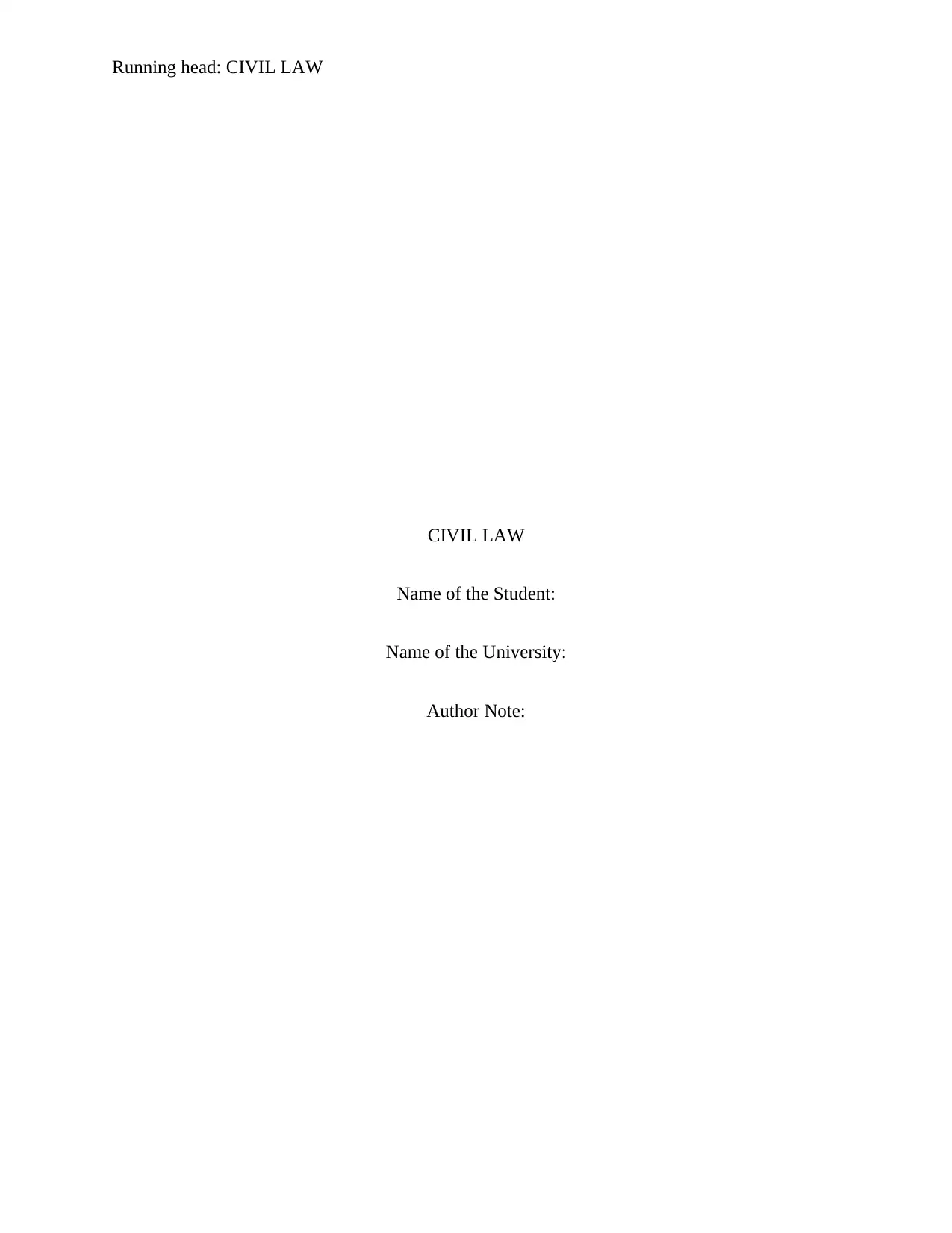
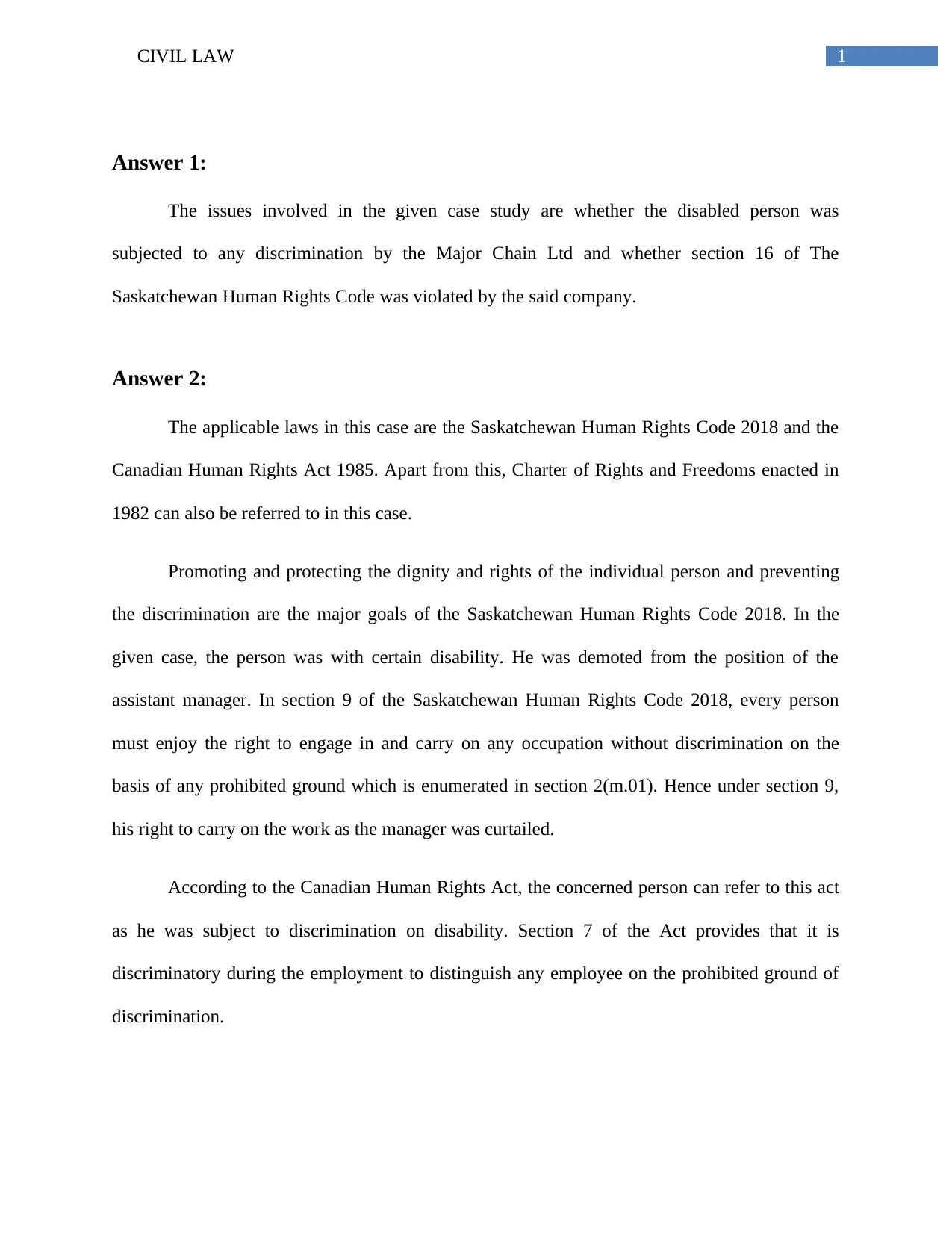
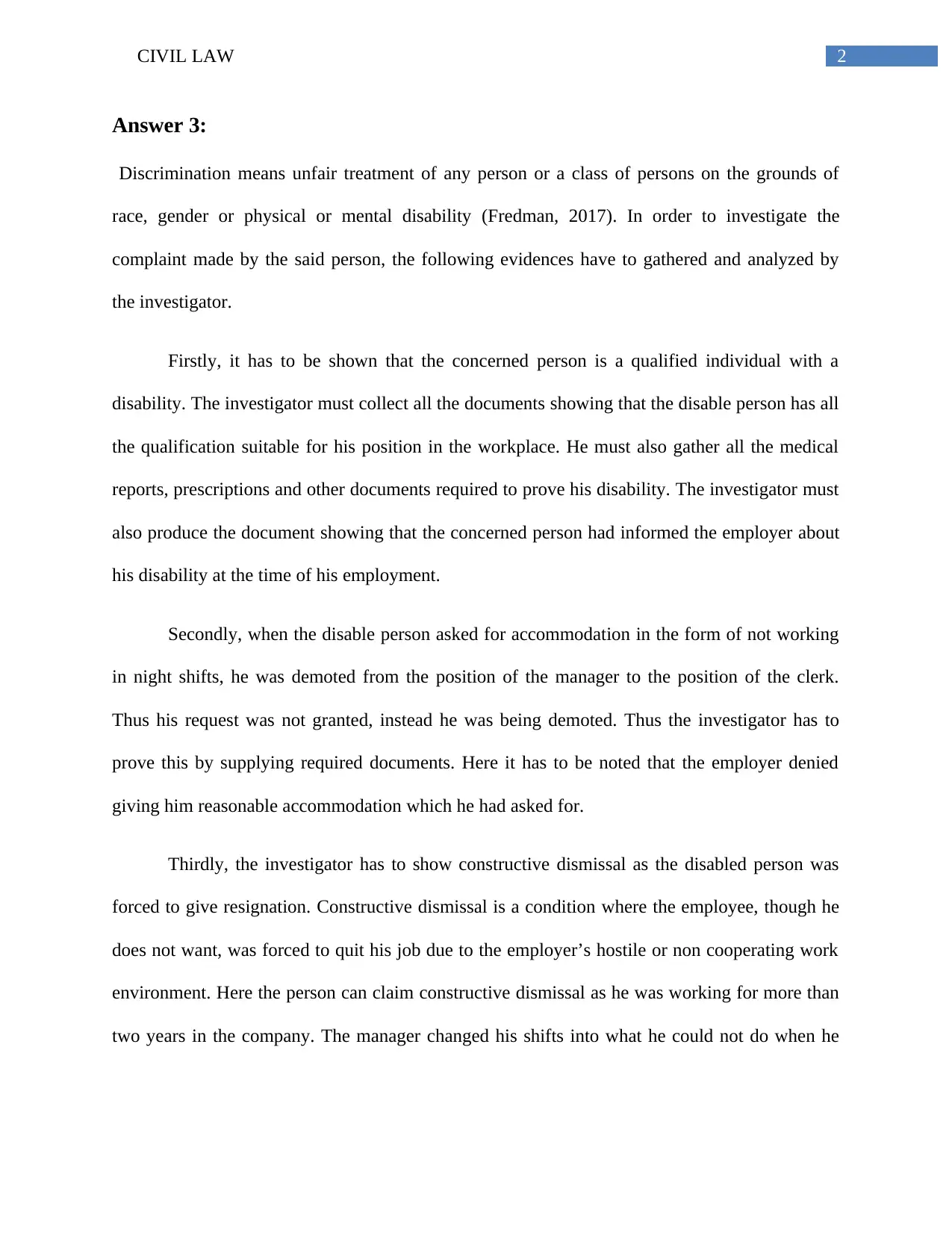

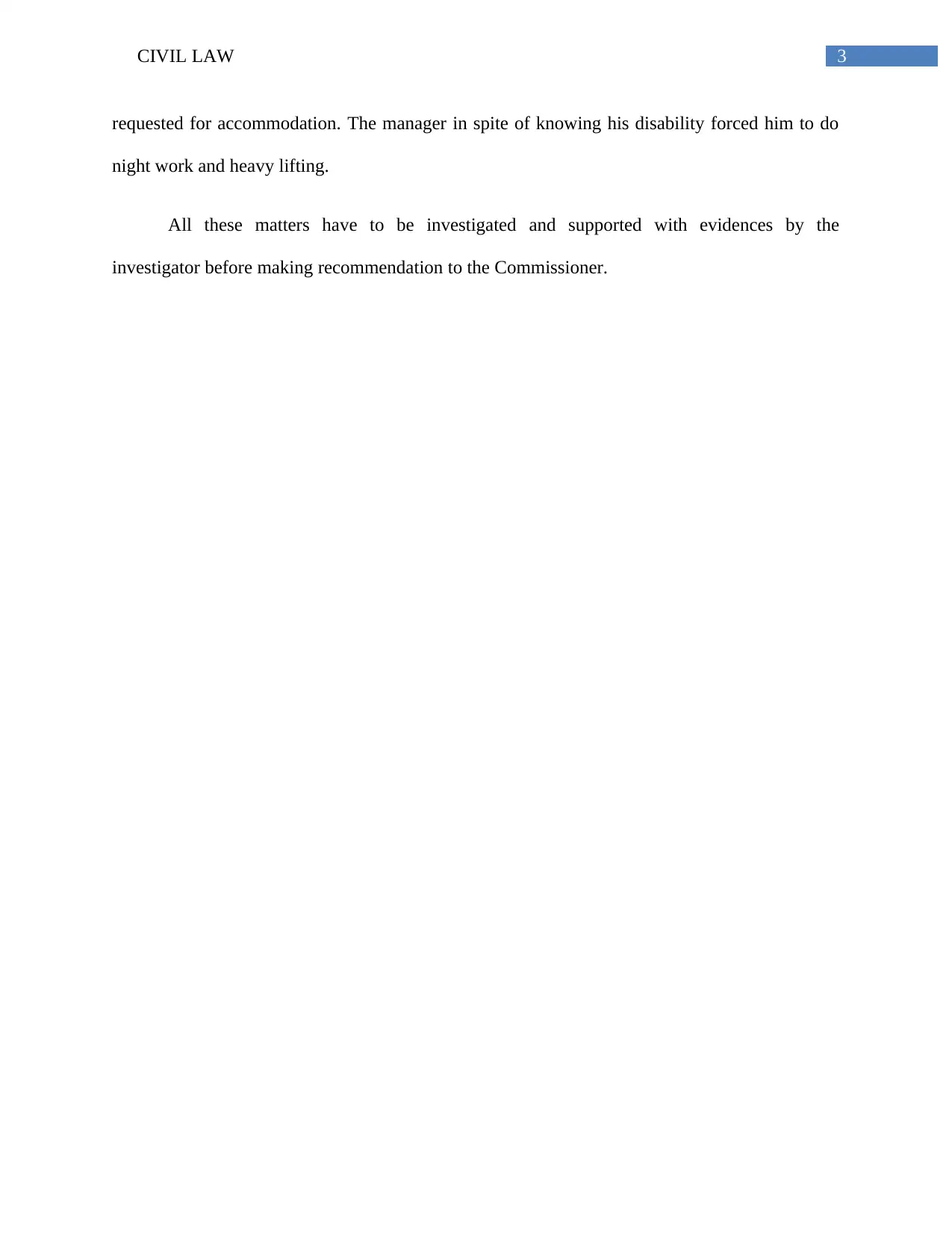
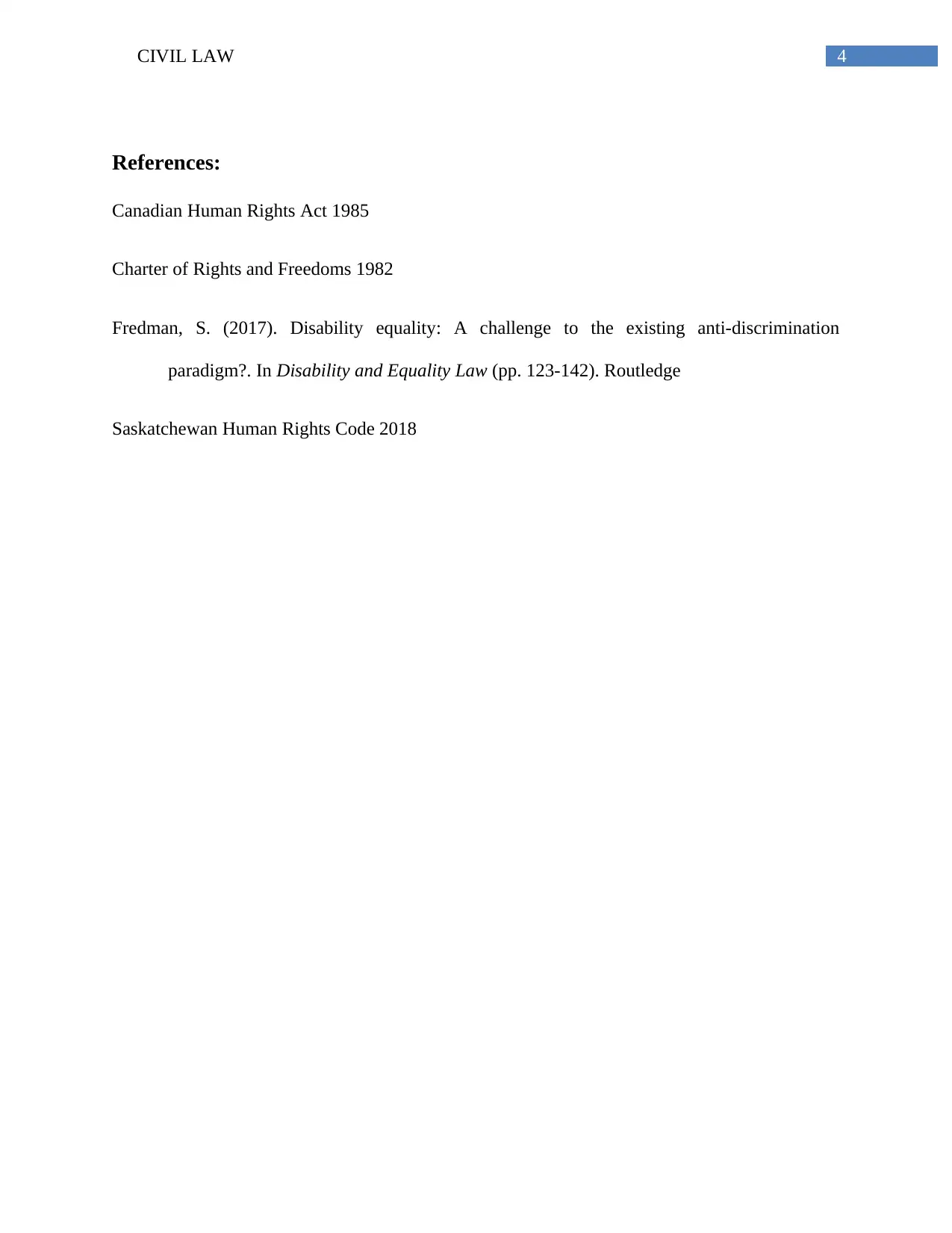





![[object Object]](/_next/static/media/star-bottom.7253800d.svg)